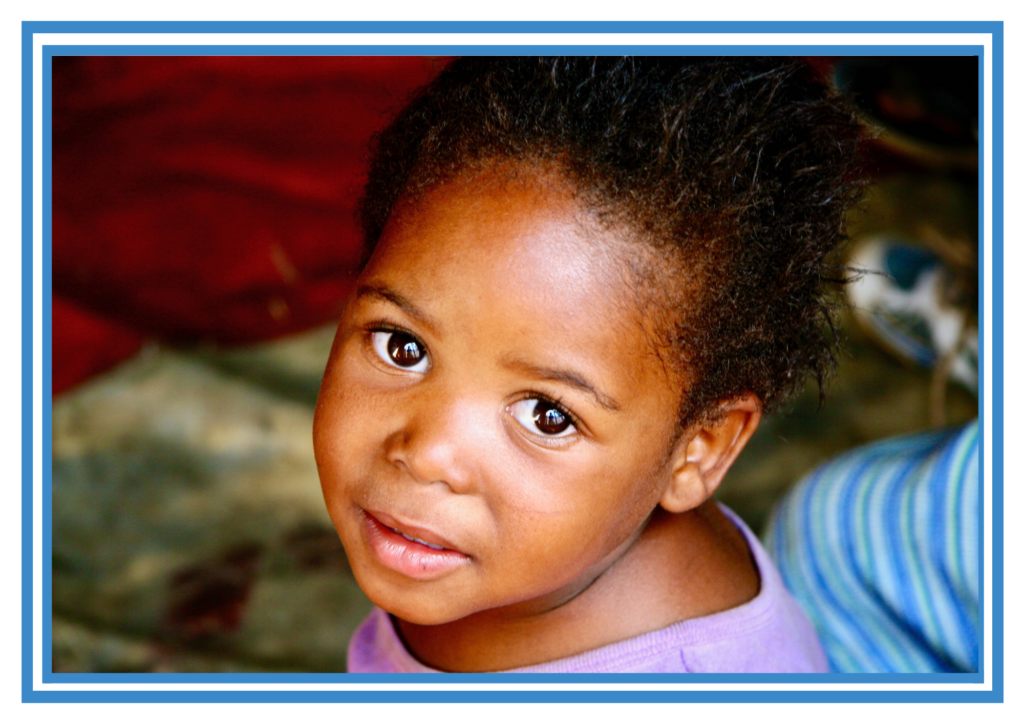…..midwives were not recognized when we immigrated to Canada, so I worked as an RN in the labour and delivery rooms. Unfortunately, my skills were not recognized, so I went to work at the Alberta Children’s Hospital.
On our journey across Africa, while Tom set up our camp. I ventured into the local villages, immersing myself in the rich tapestry of the villagers’ daily lives. Each trip to the market, each visit with the fishermen, and every encounter with the locals was a new experience and learning. The children’s curiosity and excitement at meeting a mzungu (white person) were heartwarming, and their enthusiasm made each visit unforgettable.

Through candid conversations and shared laughter with the village moms, I gained profound insights into their lives and cultures. The connections I formed with local children and families were touching and transformative. It was a celebration of cultural exchange, the simple joys of life, and the deep connections that can be forged through genuine curiosity and respect.
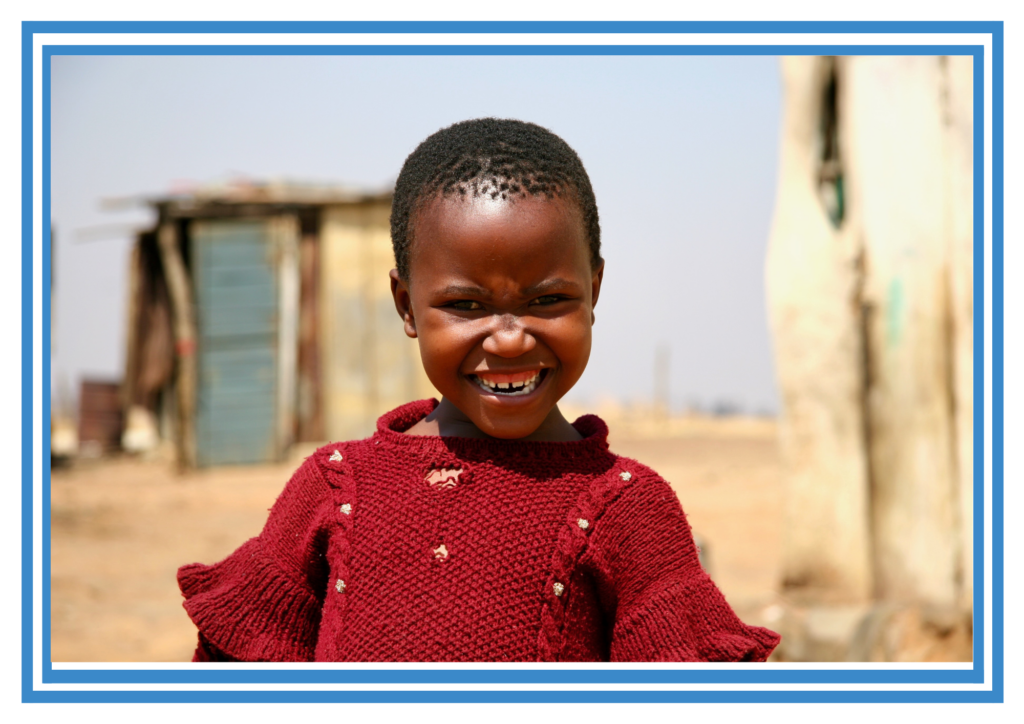
However, having lived and worked in Africa, I was certainly aware of some of the many challenges facing young children in Africa, especially the early death of their parents due to AIDS, malaria, TB, and other diseases and the lack of access to healthcare. When travelling across South Africa, I met up with Jenny, a nurse and midwife who I knew when we lived in South Africa. Jenny was pleased to meet up with us and offered to introduce me to the world of unofficial orphanages.
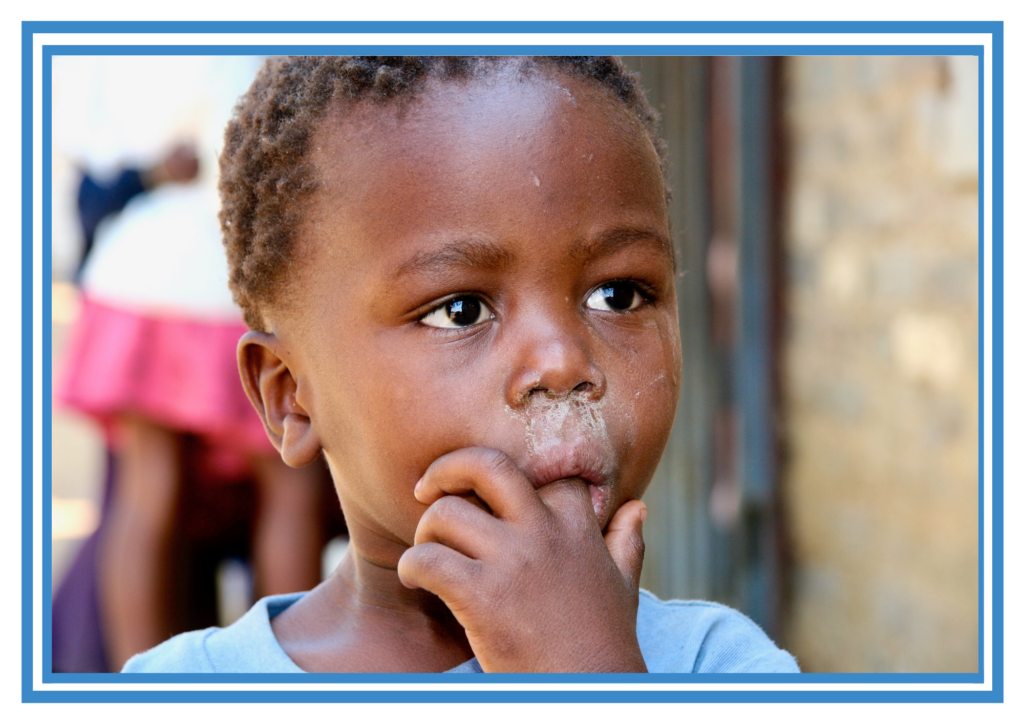
Ms. Matshabalala, an exuberant woman with a broad, friendly smile, greeted us on our arrival. Surrounding her were 38 children, excited by our arrival. The earth was dusty, and a large tree provided shade to sleeping dogs and wandering chickens. It was desolate except for several shacks. There was no running water or electricity. The children collected water from the nearby river. It was home to one amazing woman and the 38 orphans in her care. To the children orphaned by AIDS, violence, or simply abandoned, this was their home and Ms. Matshabalala, their mom. It was also an illegal squatter camp.
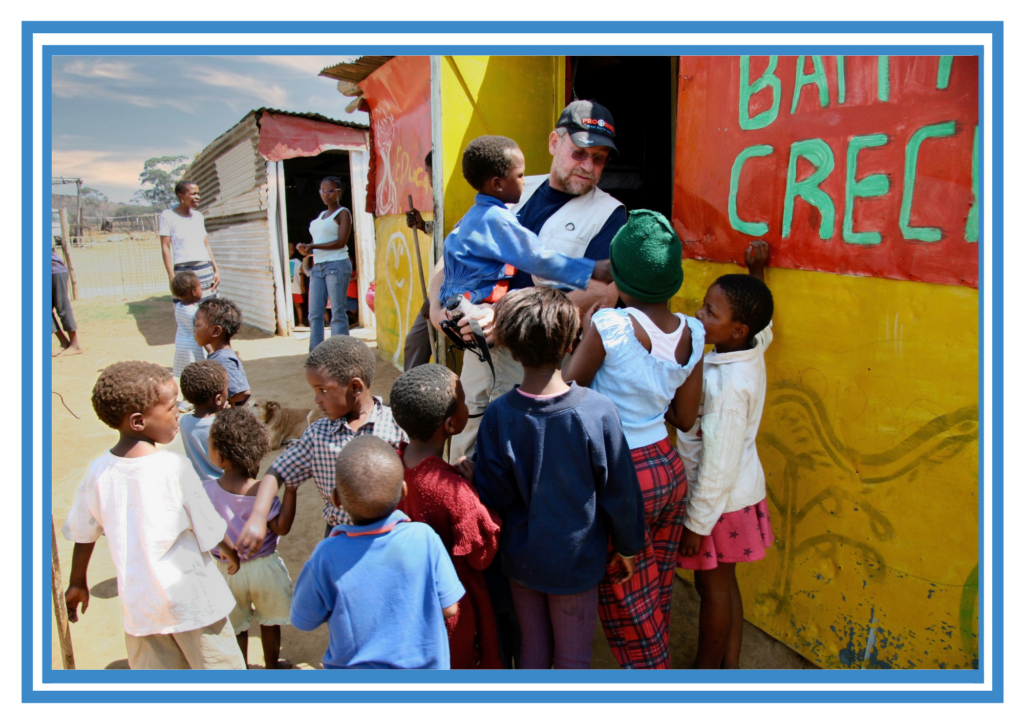
With high unemployment, high rates of AIDS and limited resources, many resorted to opening illegal and unlicensed orphanages. Ms. Matshabalala could not apply for funding but was compassionate, caring, and determined not to have her “children removed.” I asked her why women such as her open these unofficial orphanages. She explained to me that only the “healthy babies” are adopted by foreigners, “But we need to keep our healthy babies and children here, in South Africa,” she went on to explain. She told me she depended completely on donors, including some foreign NGOs. In fact, a Canadian NGO had just donated several double bunk beds to the orphanage. The girls were excited and proud to show us their “real beds.”
All the children also wanted their photos taken. “Shoot, shoot,” they cried, and then, with shouts of delight, they gathered around the cameras’ screens to see the pictures themselves.
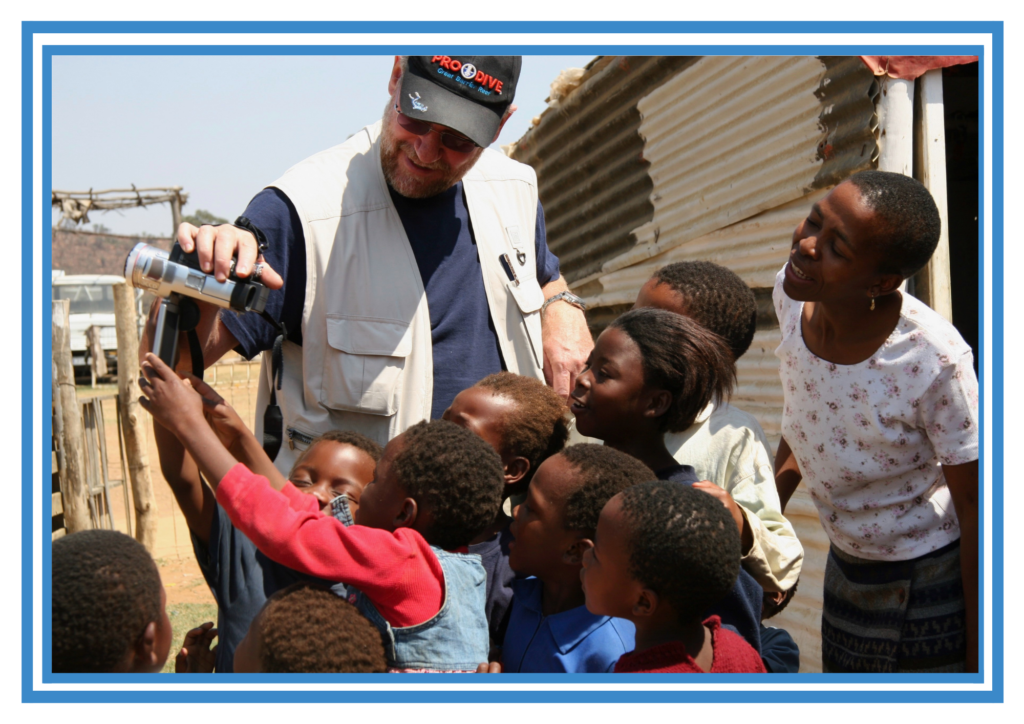
The time I spent with Ms. Matshabalala and her children was special and very humbling. The children and Ms. Matshabalala are a testament to the spirit of survival and human strength, and her work is a true labour of love. I could only admire her.
